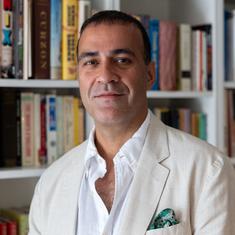The 24th Kolkata International Film Festival will screen 171 feature films and 150 short films and documentaries from 70 countries between November 10 and November 17 across 16 venues this year. Thirteen films are competing for the top prize in the Indian Language section. These include Andhadhun (2018) co-writer Arijit Biswas’s directorial debut Sun Goes Around The Earth, about footpath-dwelling and self-proclaimed Kolkata scientist KC Paul who has been trying to prove that the sun revolves around the earth for over four decades.
The focus country is Australia, and 27 Australian titles, old and new, will be screened with a retrospective in honour of director Philip Noyce. A Special Focus section will screen nine contemporary Tunisian films. Popular Bengali classic films will be screened as way of commemorating the completion of 100 years of Bengali cinema since the release of the first Bengali feature film, Bilwamangal, in 1919.

Other films in competition are Atul Taishete’s Mumbai-set Vartak Nagar, a coming-of-age-tale of four children set in the backdrop of the textile mill strikes of 1982, Praveen Morchhale’s Widow of Silence, which looks at the struggle of a Kashmiri half-widow trying to procure the death certificate of her missing husband from the government, and Bobby Sammy Baruah’s Mishing, a Sherdukpen-language thriller set in Arunachal Pradesh.
Twelve films are in contention for the Best Indian Documentary award. These include Suhel Banerjee’s docu-fiction Tides of Life, about the way of life in the Sundarbans, Devanshi Asher’s Melting Ice, about a 21-year-old Ladakhi girl’s struggle to become part of the Indian ice hockey team, and Shiny Jacob Benjamin’s National Film Award-winning Sword of Liberty, about the 19th-century Travancore leader Velayudhan Chempakaraman Thampi, one of the first Indians to rise in revolt against British rule.
The horrors of the Gulbarg Society massacre in Ahmedabad in 2002 will be revisited in Eshwarya Grover’s Memoirs of Saira & Salim. Aparna Sanyal’s The Monks Who Won The Grammy investigates the generations-old traditions of the monks of Sherbaling monastery who won the Grammy award in the Best Traditional World Music category in 2003.
Fifteen films are competing for the top award in the international competitive section. Jorge Perez Solano’s La Negrada, Mexico’s first film with an all-black cast, and which looks at the life of black Mexicans who are not officially recognised as an ethnic group in the country, is part of the competition. Ash Mayfair’s The Third Wife looks at the coming-of-age of a 14-year-old girl who is married to a landowner and becomes a mother in nineteenth-century Vietnam. In Ralston Gonzales Jover’s Persons of Interest, a man and his blind look-alike are caught up in a police investigation of a mass murder.
Romanian director Radu Jude’s I Do Not Care If We Go Down In History As Barbarians is a political comedy that revolves around a theatre director trying to successfully recreate the Odessa massacre of 1941-42 that resulted in the deaths of tens of thousands of Ukranian Jews in the hands of Romanian soldiers.
In Vladimir Alenikov’s Russian film Strangers of Patience, a deaf-and-mute woman is trapped by a famous photographer who invites her to his home for a project. The French film Fornacis, directed by Aurelia Mengin, looks at a lonely woman consumed by her past. Cai Chengjie’s Chinese film The Widowed Witch is a magic realist story of a thrice-widowed woman battling social stigma and superstition.
The non-competitive international section has a few festival favourites in the 2017-’18 season. These include Ali Abbasi’s fantasy-romance Border, Michael Aviad’s Working Woman, about a mother of three fighting sexual harassment by her powerful realtor boss, and Siew Hua Yeo’s social thriller A Land Imagined, the first Singaporean film to win the Golden Leopard award at the Locarno Film Festival this year.
Kenyan director Wanuri Kahiu’s LGBTQ-themed love story Rafiki was banned for release in its home country, but became the first Kenyan film to be officially selected in the Un Certain Regard category at the Cannes Film Festival. Renee Beaulieu’s The Naturally Wanton Pleasures of Skin along with Adina Pintilie’s Touch Me Not, which won the Golden Bear award at the 2018 Berlin Film Festival, looks at sexuality, the body and relationships. Nadine Labaki’s Capharnaum, about a street urchin who sues his parents, picked up the Jury prize on competing for the Palme D’Or this year.
Other films in this section include Alvaro Brechner’s A Twelve-Year Night, the Uruguayan entry in the Best Foreign Language Film category at the 91st Academy Awards, and Terry Gilliam’s long-gestating The Man Who Killed Don Quixote.
The Maestro section is choc-a-bloc with the latest films from the world’s big-name directors. The section includes Kim Ki Duk’s Human, Space, Time and Human, Jia Zhangke’s Ash is Purest White, Polish film Cold War, which got Paweł Pawlikowski the Best Director award at the 2018 Cannes Film Festival, Jean Luc Godard’s The Image Book, Hirokazu Koreeda’s Palme D’Or-winning Shoplifters, Lav Diaz’s Season of the Devil, Jafar Panahi’s 3 Faces, Nuri Bilge Ceylan’s The Wild Pear Tree, Lars Von Trier’s The House That Jack Built, Gaspar Noe’s Climax, Paolo Sorrentino’s Loro, and Oliver Assayas’s Non-Fiction.
Among the titles in the non-competitive documentary section are the National Film Award-winning The Slave Genesis by Aneez KM, about Wayanad’s Paniyar community, Vaishali Kendale’s Chasing Dreams, about three Maharashtrian girls trying to excel in their individual sport, Putul Mahmood’s mental health-themed Atasi, Hemant Gaba’s An Engineered Dream, which takes a look at the coaching centre culture in Kota, Debarun Dutta’s Smart City Blues, about the conflict between the administration in Indore and the 3,000 waste pickers who were evicted from their homes overnight, Rajesh James’s In Thunder Lightning and Rain, about three women fighting social ostracism, Priyashanker Ghosh’s Goddess in the Mosque, about a Muslim boy playing a female role in Hindu folk theatre, and Sanjiban Nath’s Mothers with Iron Hearts, about two mothers living with their young children suffering from cancer.
The international entries in this section include Adam Weingrod’s Israeli film The Island, about a Jerusalem-based hospice for terminally ill patients, and Niklas Kullstrom and Martti Kaartinen’s Eastern Memories, which juxtaposes visuals of contemporary Central, East and South-East Asia with the writings of early-20th century Finnish philologist GJ Ramstedt.
Also being screened are Shivendra Singh Dungarpur’s seven-and-a-half hours-long history of Czech and Slovak cinema, CzechMate: In Search of Jiri Menzel, and Aditya Vikram Sengupta’s Jonaki, a visually rich portrayal of an old woman reliving her past, both of which are part of a Special Screening section.
Thirteen restored classic films, including Satyajit Ray’s Pather Panchali (1955), Vittorio De Sica’s Bicycle Thieves (1948), Federico Fellini’s Amarcord (1973) and Uday Shankar’s Kalpana (1948), will be screened as part of the festival’s focus on film restoration. The screening will be accompanied by a workshop on film preservation organised by Shivendra Singh Dungarpur’s Film Heritage Foundation in collaboration with Viacom18 and International Federation of Film Archives.
The Contemporary Australian Cinema section features Lion (2016) director Garth Davis’s new film Mary Magdalene. Other films of note being screened are the Tunisian Dear Son, directed by Mohammed Ben Attia and co-produced by the Dardenne brothers, about a young man leaving his home to join the Islamic State of Iraq and Syria, and Axel Grigor’s documentary Jill Bilcock: Dancing The Invisible, about the eponymous film editor who edited such films as Romeo + Juliet (1996), Moulin Rouge! (2001) and Road to Perdition (2002).










